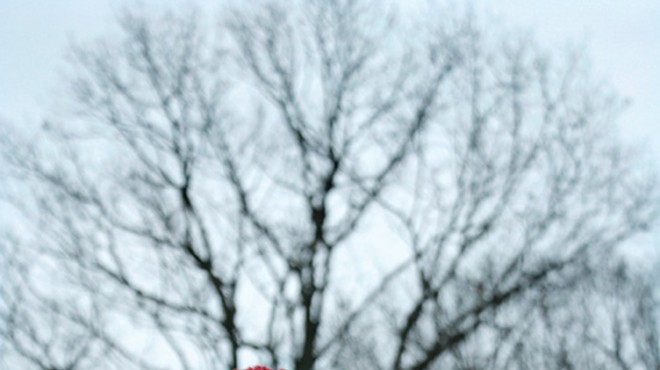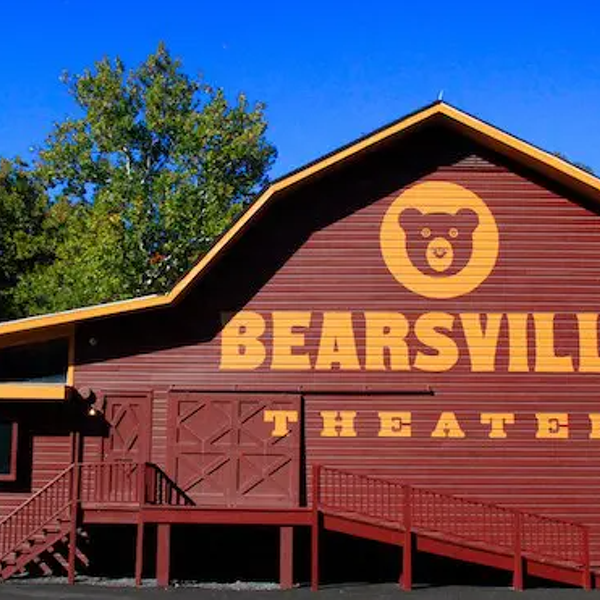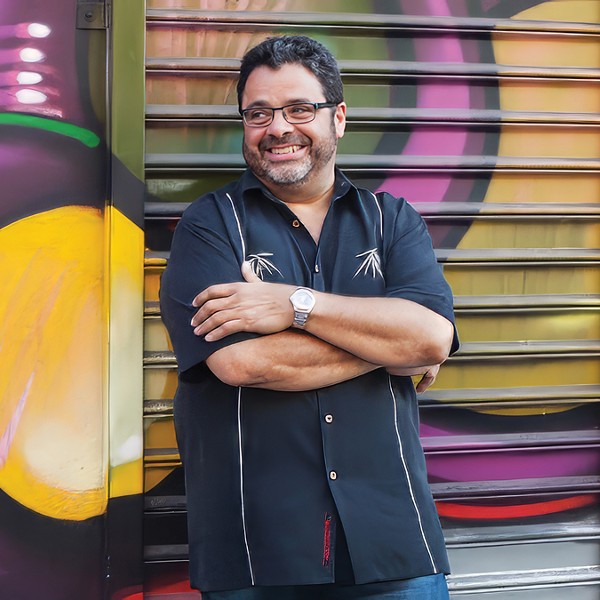The plan was to interview acclaimed composer and keyboardist Carla Bley in New York on the afternoon of November 5, then catch her set as a member of bassist Charlie Haden’s Liberation Music Orchestra at the Blue Note that night. The extra-celebratory bustle of a post-presidential election city would’ve made the perfect backdrop for a discussion of Bley’s equally colorful music. But plans sometimes change. Even for a well-considered musician like Bley, whose talents, she too modestly maintains, lie much more in the laying of plans—specifically, writing and arranging—than in instrumental prowess. So when it was learned that she had bowed out of the four-night residency, owing to business reasons and the looming deadline of another project, the change had been an unexpected one.
Yet change can often be good. It’s the nature of jazz itself. And of course it was change that was the central, landslide-approved message of the still-fresh Obama win, a victory that’s today resonating well beyond the confines of a cramped downtown nightclub, anyway. No need, then, to be in the middle of the Manhattan miasma to get the vibe and Bley’s take on it: The same electrifying feeling permeates not only the secluded, pine-shrouded Willow home the artist shares with her partner of 25 years, the bassist Steve Swallow, but also the hearts and hopes of the couple’s many music-business friends from across the sea.
“We’ve had people we know in England, Austria, all over, calling the house all day, just saying, ‘Wow!’” gushes Bley from beneath her trademark frizzy blond fringe. “It’s been so long since I’ve admired a president, and Obama just seems so real, so natural. Like someone I would even enjoy having dinner with.”
Now, that would be a grand summit, indeed: the impending leader of the free world and one of the leading composers of the postbop world, breaking bread and toasting the future. Yet no matter what the field, for a leader, especially one who’s also a visionary upstart, the road is nothing if not lengthy and winding. Known for her sweeping, dynamic, multi-hued works, which often carry drama and humor in equal measure, Bley is, as the New York Times’s Ben Ratliff writes, “easily one of the best composers we’ve had in the last 40 years of jazz.”
Bley was born Carla Borg in Oakland, California, in 1938. Her mother, who died when Bley was eight, also played the piano, and her father was a church organist. “My first performance was in a church recital when I was four,” she recalls. “I played ‘Three Blind Mice’ on the organ. My folks taught me piano at home, but when I was eight I bit my mom after she criticized my fingering. So that was the end of piano lessons.” Ever the rebel, Bley dropped out of high school at 15. “So then I went to school to learn to be a dishwasher.”
Wait a minute. What?
“Yes! It’s true,” says the revered composer with a laugh. “It was the law in Oakland at the time that if you dropped out of school before you were 16, you had to enroll in this trade school where they taught you a job. I guess the logic was that anyone who dropped out of high school must be really dumb, so let’s just train them to do something that doesn’t take any brains to do. And one of the programs was dishwashing. But by then I’d already decided to become a piano player anyway.”
And thank God for that. Bley took solo gigs at lounges and accompanied singers, as well as a child star with absolute pitch who played the rims of water-filled glasses for audiences at insane asylums. “It was like a sideshow thing,” Bley remembers. “Oakland was still really rural, very hillbilly, back then.”
In 1955, when she was 17, Bley came to New York with no money to her name. At first, she lived on the streets, crashing by night on park benches, in Grand Central Station, and at various apartments with a homeless group. Eventually she took a room in Times Square after she landed a job as a cigarette girl at legendary jazz spot Birdland. “I was also a camera girl for a while,” she says. “[The club’s management] gave me a Polaroid and told me to go around to tables and take pictures of the customers to sell to them. But I’d always end up in front of the stage, listening to the band. People would ask me to take their pictures and I’d tell them to quit bothering me. I had one dress, a cotton frock that I made myself, and that’s what I wore to work and everywhere else.” While at Birdland, Bley witnessed performances by the explosive “new testament” Count Basie big band and most all of the reigning beboppers. There she also met her first husband, pianist Paul Bley, who encouraged her to begin composing.
“I had a lot of gall back then,” she says with a smirk. “I’d go up to whoever was playing and push my stuff on them—‘Excuse me, Mr. Coltrane, will you take a look at this piece I wrote?’ or ‘Hey, Cannonball [Adderly], have I got a tune for you!’ I’m sure they thought I was just some crazy kid.” It wasn’t long, however, before Bley started placing her compositions on LPs by George Russell, Jimmy Giuffre, and Paul Bley, leading other top artists to seek out her modernistic, imaginative, and unpredictable scores.
“I’ve been playing Carla’s music since 1959,” says Swallow, who performed in both Giuffre’s and Paul Bley’s trios, “and it still surprises me. Being an autodidact, she’s constantly reinventing her vocabulary. But her style is still immediately recognizable.”
As the following decade unfolded, Bley became more deeply entrenched in the flowering free jazz/avant-garde scene, where she met trumpeter Michael Mantler, who she married in 1964. With Mantler she formed the Jazz Composer’s Orchestra, a fluctuating, colossal collective that featured the cream of New York’s free players; its parent organization, the Jazz Composer’s Orchestra Association (JCOA), also founded by the couple, performed Bley’s music and commissioned works by other key figures. The orchestra’s debut, 1968’s Communications, which also boasts Cecil Taylor, Larry Coryell, Pharoah Sanders, Don Cherry, Gato Barbieri, and Roswell Rudd, is a certified landmark of the avant-garde. After vibist Gary Burton’s recording of her cycle A Genuine Tong Funeral brought further fame, she joined Haden’s newly formed Liberation Music Orchestra, composing and arranging music for the reuniting-as-needed free jazz protest band’s self-titled 1969 debut.
“Carla is really a one-of-a-kind composer and musician,” says Haden in a phone interview from his Tribeca hotel room. “When I formed the Liberation Music Orchestra, she was really the only person I would trust to write and arrange the music. She’s very unusual in what she does, and far more people should know about her, really.”
In 1971, Bley unveiled her galvanizing work, Escalator Over the Hill, a three-LP “jazz opera” with librettos by the poet Paul Haines. The sprawling epic, which takes in everything from jazz to rock, electronics, Indian ragas, and cabaret music and features guest appearances by Linda Ronstadt and Cream bassist Jack Bruce, set a benchmark for compositional ambition that continues to stand. Thanks to her releasing Escalator and its follow-up, 1973’s Tropic Appetites, as well as most of her subsequent discs, on her own WATT label, Bley is also now a recognized indie pioneer. (Currently WATT and its related imprint, XtraWATT, are distributed through Germany’s ECM Records.)
Before they separated, Mantler and Bley had a daughter, Karen Mantler (now a musician herself), and moved to the Woodstock area in the early 1970s. “Michael wanted to be in the country, so we found a place in Mount Tremper,” Bley says. “I wasn’t sure if I really wanted to live in the country at first. But all these other musicians we knew and played with were up here, too—Dave Holland, Jack DeJohnette, Howard Johnson—and everyone was really starting to work more in Europe than in New York, anyway. So actually it never really felt like stepping outside the circle.”
Throughout the ’70s and ’80s Bley continued to manage the JCOA and to write and record for various-sized bands, including a series of duo sets with Swallow. Although the JCOA has been inactive for the last two decades, Bley herself has been commissioned to write works for outside organizations, an endeavor about which she has mixed feelings. “With too many of these commissions the music just doesn’t get played right without me, so I have to be there to conduct it,” she moans. “I recently heard a group of my solo piano pieces played by a classical master and he just ruined them, totally misunderstood the music. The thing with jazz is that it’s really more of an oral tradition, you can’t really write it down. Oh, you can write down the notes, but not the feeling that you have to put into the piece to play it right. I mean, you can write something like ‘[play a] semi-demi-hemi quaver here,’ but even that doesn’t get it across. I pretty much have to perform on the pieces to make sure they’re played correctly.”
One of the releases that she was fortunately present for the making of is the just-released album by Carla Bley and Her Remarkable Big Band, Appearing Nightly (WATT/ECM), which was recorded in Paris in 2006 using pieces commissioned by the Monterey Jazz Festival and the Orchestra Jazz della Sardegna. The set harkens back to the sounds of her early piano-lounge gigs and Birdland days, and it is rich in references to Tin Pan Alley and the hard-swinging sounds of Stan Kenton, Duke Ellington, and, of course, Count Basie. “I used to be all about dissonance, but these days I think that if I could just play like Count Basie I’d be overjoyed,” Bley says with a chuckle. Yet while Appearing Nightly is certainly boiling over with classic big-band flavors, make no mistake— it’s by no means a “retro” album. Bemusingly named pieces like “Greasy Gravy,” “Awful Coffee,” and the four-part centerpiece suite “Appearing Nightly at the Black Orchid” are unflagging with the composer’s ultramodern, impressionistic, and reliably unexpected approach to the big-band form.
Today Bley is deep into putting the finishing touches on some arrangements of Christmas carols for a tour of Europe this month. “I’ve been working on [the project] for two years now, which is why it’s Christmas all year ’round in this room,” she says, gesturing to a small, decorated tree and a string of lit holiday lights in the corner of her basement studio. “It helps with the mood.”
“[The Christmas music] is actually something I’ve been wanting to do since right after Tropic Appetites, and I’m about three quarters of the way done now,” she says as Karen Mantler enters to remind her of her schedule. “If you’ll excuse me, I guess it’s back to work.”
So while the world may have lost a dishwasher in 1955, it gained the amazing music of Carla Bley. Not a bad deal, to say the least.
Carla Bley and Her Remarkable Big Band’s Appearing Nightly is out now on WATT/ECM Records. www.wattxtrawatt.com.


















